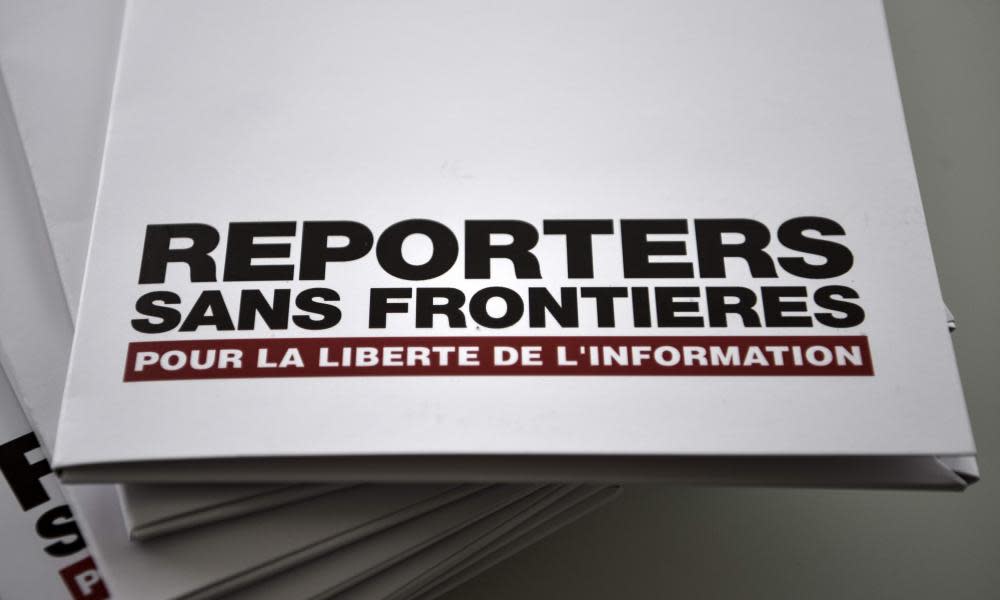Why press freedom is under the cosh in the UK | Jane Martinson

Each year an index of press freedom raises fresh concern about the horrors faced by journalists in countries such as Turkey and North Korea; this year Britain and other bastions of press freedom are also causing concern.
Journalists working in the UK and US may not fear death in the same way their colleagues do in more dangerous parts of the world; but the attacks on them could be just as damaging to journalism itself.
On the face of it, there is little new from the World Press Freedom Index, produced by Reporters without Borders: Nordic countries still afford the greatest freedom, North Korea, Eritrea and Turkmenistan the least.
Yet there is something new and worrying happening, underlined by the fact that the UK has fallen two places to 40th out of 180 countries, down 12 places in the past five years. Other leading democracies have also fallen, most notably the US – down to 43 – in a year in which a new president called the press an “enemy of the American people”.
What’s going on? The not-for-profit organisation also known as Reporters Sans Frontières explained its decision to downgrade the UK by pointing to several attacks on press freedom, typically made in the name of national security. The worst of these was the Investigatory Powers Act, which it called the “most extreme surveillance legislation in UK history” as it allows for surveillance without adequate protection for journalists or their sources, particularly whistleblowers.
There are two other threats. The first is the proposal from the Law Commission for a new espionage act that would increase the maximum jail term for whistleblowers and widen the definition of espionage to potentially include journalism, a proposal not yet rejected by the government. Then there is continued doubt over the implementation of section 40 of the Crime and Courts Act , with a provision that could, if implemented, force publishers to pay the costs of people who sue them, even if a publisher wins.
Increasingly governments are acting with impunity against these sorts of freedoms because they don’t believe anyone cares about them any more. One of most telling examples of this is the fact that the Investigatory Powers Act was passed last year with barely a whimper of protest.
Let’s be honest, there are no votes in protecting journalists. The vague but real threat of terrorism is allowing the long-established values of freedom of speech to be weakened, and along with it the ability to hold the powerful to account.
Instead, faith in journalists and trust in journalism is decreasing. Some of this harm is self-inflicted of course. Evidence of wrongdoing, from phone-hacking to corruption, has diminished the standing of journalists, just as the rise of social media has allowed consumers to access other sources of information, ones they often trust more.
This all came to a head with the political eruptions of last year. Media bashing has paved the way for a sense that anyone’s truth is valid. In that context, “fake news” is increasingly anything you don’t agree with, even if it’s underpinned with journalistic precision based on sources and facts.
Theresa May, so different in style from the American leader, is less likely to display her antagonism in late-night tweets. But for all her warm words about freedom of the press, she has continued her predecessor’s tendency to attempt to control the flow of information. Not just her refusal to appear in TV debates, but also a preference for roped-off access on election visits, for example.
A lack of access and declining levels of trust are of greatest concern in the run-up to an election. As with the EU referendum, the danger is that the media gets managed with mugwump soundbites and personality politics, and the real issues – funding for health and social care and immigration among them – get lost.
The expected strong majority for the Conservatives is likely to make things even worse. Freedom of the press was born in liberal democracies. That freedom may have been abused by some, but it should not be jettisoned simply because in the present moment its practitioners happen to find themselves, for a number of different reasons, disliked and distrusted.

 Yahoo News
Yahoo News 
